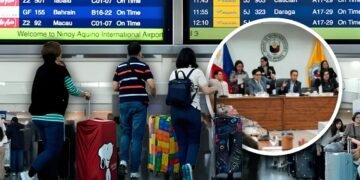The Catholic Bishops’ Conference of the Philippines (CBCP) warned the public and government officials against using the allegations of former Ako Bicol party-list representative Zaldy Co for political purposes, as the dispute over supposed budget insertions continues to widen.
Co, who has been linked to alleged irregularities in infrastructure project allocations, resurfaced this week with new claims. He said former House Speaker Martin Romualdez told him not to return to the Philippines after a medical check-up, allegedly conveying instructions from President Bongbong Marcos.
In a statement signed by CBCP president Cardinal Pablo Virgilio David, the bishops said they were concerned that the issue could be used to influence public sentiment or political outcomes. “We caution against the political exploitation of these allegations, especially when released at sensitive moments,” the CBCP said.
Co also released Part 1 and Part 2 of his public statements, saying these materials provide context to his claims and to earlier testimonies presented before the Senate Blue Ribbon Committee.
He further alleged that although he was initially assured he would be “taken care of,” he later realized he was being positioned as a scapegoat in the administration’s anti-corruption messaging.
Co accused Marcos and Romualdez of being responsible for around ₱100 billion in alleged insertions in the proposed 2025 national budget. He also published a list of projects he said were requested through Romualdez, Budget Secretary Amenah Pangandaman, and Presidential Legislative Liaison Office chief Adrian Bersamin during the bicameral conference process.
The CBCP emphasized that due process and verified evidence must guide the handling of Co’s claims. It urged him to return to the Philippines and provide formal testimony instead of issuing statements online.
“Public declarations on social media cannot substitute for sworn testimony in proper legal venues,” the CBCP said. “For the sake of national interest, these allegations must be examined transparently and in accordance with the rule of law.”












